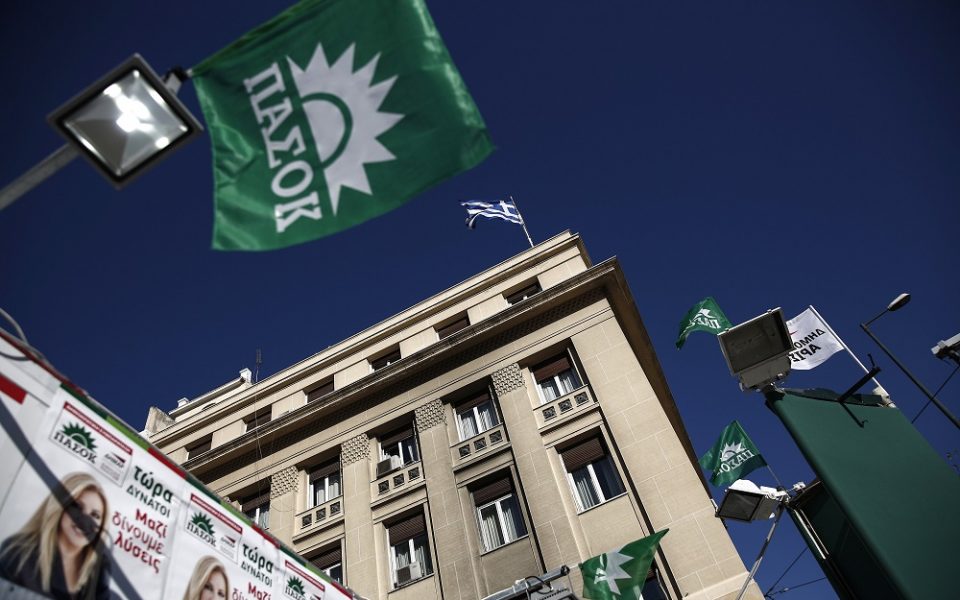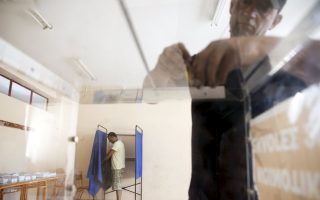Greeks expect more of the same hardship as they vote again

As Greeks prepare to return to the polls this weekend, hope their election will lead to a break from a six-year economic crisis has turned into fear the result will just deliver more of the same.
Kiki Kondyli, an Athens store owner, was formerly an enthusiastic supporter of Alexis Tsipras’s Coalition of the Radical Left, or SYRIZA. She says she won’t support the party this time because of the former prime minister’s U-turn on opposing spending cuts and tax increases to meet the demands of the nation’s creditors. In fact, she may not bother to vote at all.
"All the politicians need to change; they are all the same in the end," Kondyli, 47, said on Friday in her outlet selling arts and crafts within view of the Acropolis hill. "We have gotten tired of the situation."
Such weariness is a common theme in Athens as the capital gears up for what’s now a grindingly familiar ritual: Sunday’s vote will be Greece’s sixth national election in as many years, including this summer’s surprise referendum on the conditions for a third European bailout.
Former hero
Tsipras, 41, rallied thousands of supporters waving red, purple, and white party flags in the central Syntagma Square on Friday night. He told the cheering crowd he would "break the shackles of the past" and move Greece forward "in dignity."
He was joined by politicians from other European anti- austerity parties, including Pablo Iglesias of Spain’s Podemos and Gregor Gysi of Germany’s Left, a reminder of the hero’s welcome Tsipras received when he won the election in January, pledging to stand up to creditors’ demands.
Nearby, what had until hours earlier been an information kiosk for the rival New Democracy party was encased in SYRIZA signs. The center-right party’s leader, Evangelos Meimarakis, is campaigning on a platform of stability, drawing on New Democracy’s pedigree as a frequent party of government since the fall of Greece’s military dictatorship in 1974.
"There’s great insecurity and there are no clear choices," said Kelly Boza, 23, who works in a cafe in the city center. She said that many of her friends have joined the exodus of young Greeks leaving for other European countries or further afield in search of economic opportunity.
Tight vote
SYRIZA has a small lead in the polls. A survey published late Friday by Kapa Research for To Vima newspaper said it has the support of 31.2 percent of voters, compared with 28.3 percent for New Democracy. The poll, which surveyed 1,201 people and had a margin of error of 2.8 percent, said the nationalist Golden Dawn is running third, with 6.4 percent support.
Both SYRIZA and New Democracy say they will support the terms of the bailout deal that Tsipras struck in July with European creditors. In exchange for 86 billion euros ($98 billion) of emergency aid, Greeks must submit to further sharp budget cuts and tax rises, measures that led to a split within SYRIZA in August and triggered new elections.
Where things get more complicated is what the next governing coalition might look like. It’s likely neither SYRIZA nor New Democracy will win an outright majority in the 300-seat parliament, giving significant influence to smaller parties and opening the door to further political turmoil.
With both major parties pledging to implement the bailout agreement, "the election is an opportunity to gain some stability," Diego Iscaro, an economist at research firm IHS Inc., said by e-mail.
Still, if the winner can’t achieve a governing majority either alone or with smaller parties, "a SYRIZA or ND-led minority government would be short-lived," potentially requiring yet another election this year if it loses the confidence of parliament, Iscaro said.
Back from brink
Greeks will vote in relatively benign circumstances compared with those before July’s referendum. Then, banks were shut because of capital controls imposed by Tsipras’s government after bailout talks broke down, bringing business to a crawl and leaving people worried about whether their savings would be seized to shore up lenders. European leaders, including the usually more dovish European Commission President Jean-Claude Juncker, had begun to talk openly about Greece having to exit the euro area.
Now commerce is returning, pensions are being paid, and Greeks needn’t worry about losing the funds in their bank accounts. Their country’s membership of the single currency is secure, for the moment at least, and financial markets are even beginning to signal that investors would prefer Tsipras return to Maximos, the official residence of Greece’s prime minister.
Greek government bonds have posted the biggest returns in the euro area over the past month and the country’s stock market is also rallying.
All that’s been little consolation to people like Stefanos Tsoutsanis. The 52-year-old Athenian says he’s unsure whether he’ll vote on Sunday because Greece’s international creditors have "predetermined" the country’s policies and left its people with "no hope."
Unmasked campaigns
If he does cast a ballot, Tsoutsanis said it would be for Tsipras, who he believes has a better chance of improving life for future generations. "He’s young and deserves to win again," said Tsoutsanis, who was standing in for an acquaintance at a sidewalk stand in central Athens with Greek bread rings for sale. "Something might change for the kids."
Party leaders are out of chances to make their arguments to voters. In accordance with Greek electoral law, official campaigning ceased at midnight Friday, making SYRIZA’s Syntagma Square rally the last major public event before voting begins at 7 a.m. Sunday. Balloting will end at 7 p.m., with exit poll results expected immediately.
Kondyli, the Athens craft store owner, said she has gone to pre-election events put on by most of the main parties in the past week and got bored by their similarity.
"They should all wear the same mask on the stage like in ancient Greece," she said.
[Bloomberg]





